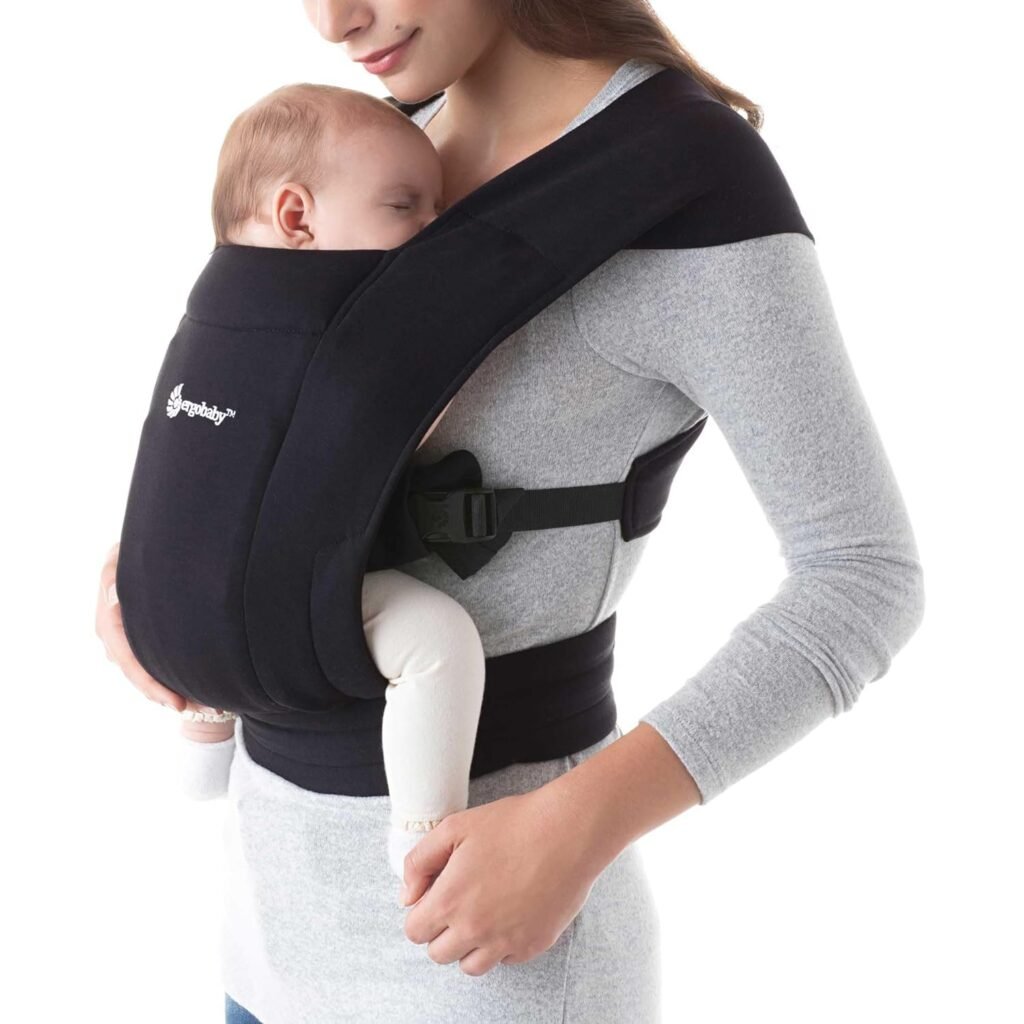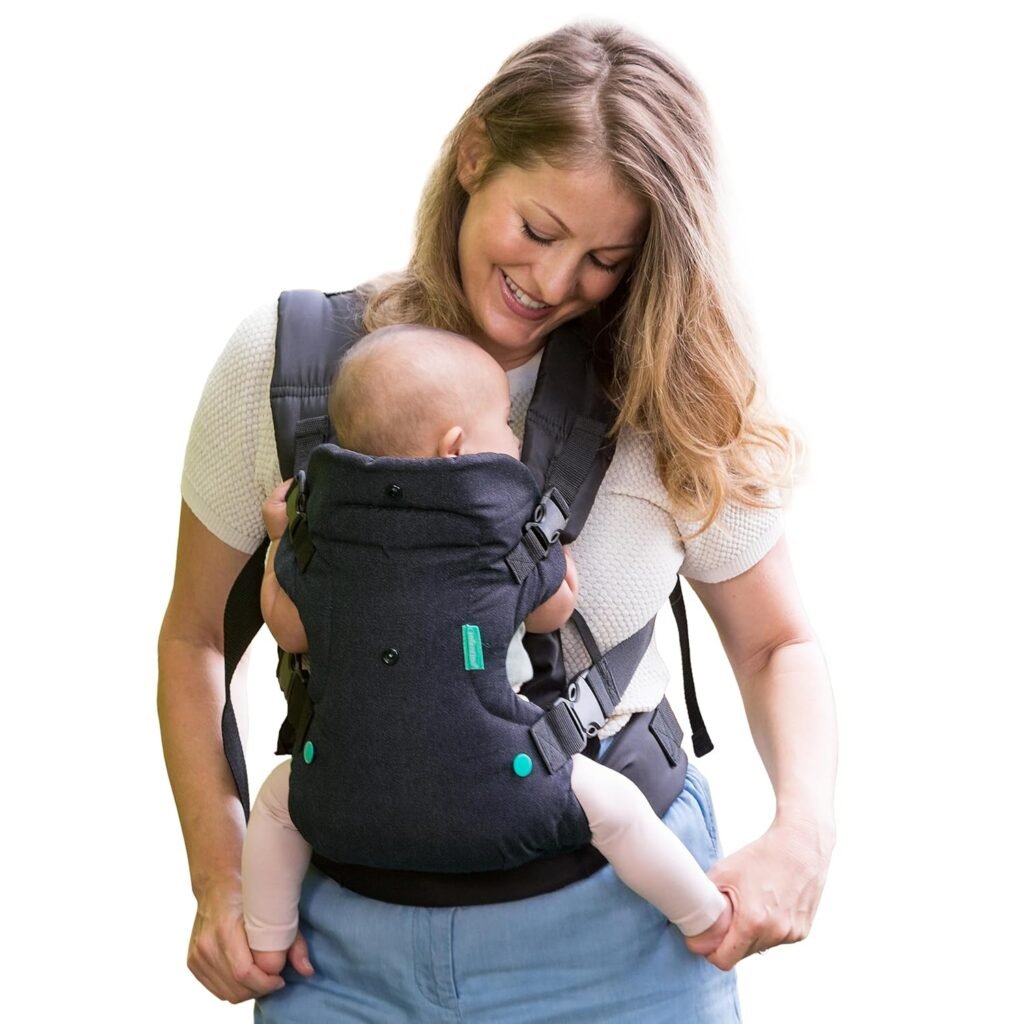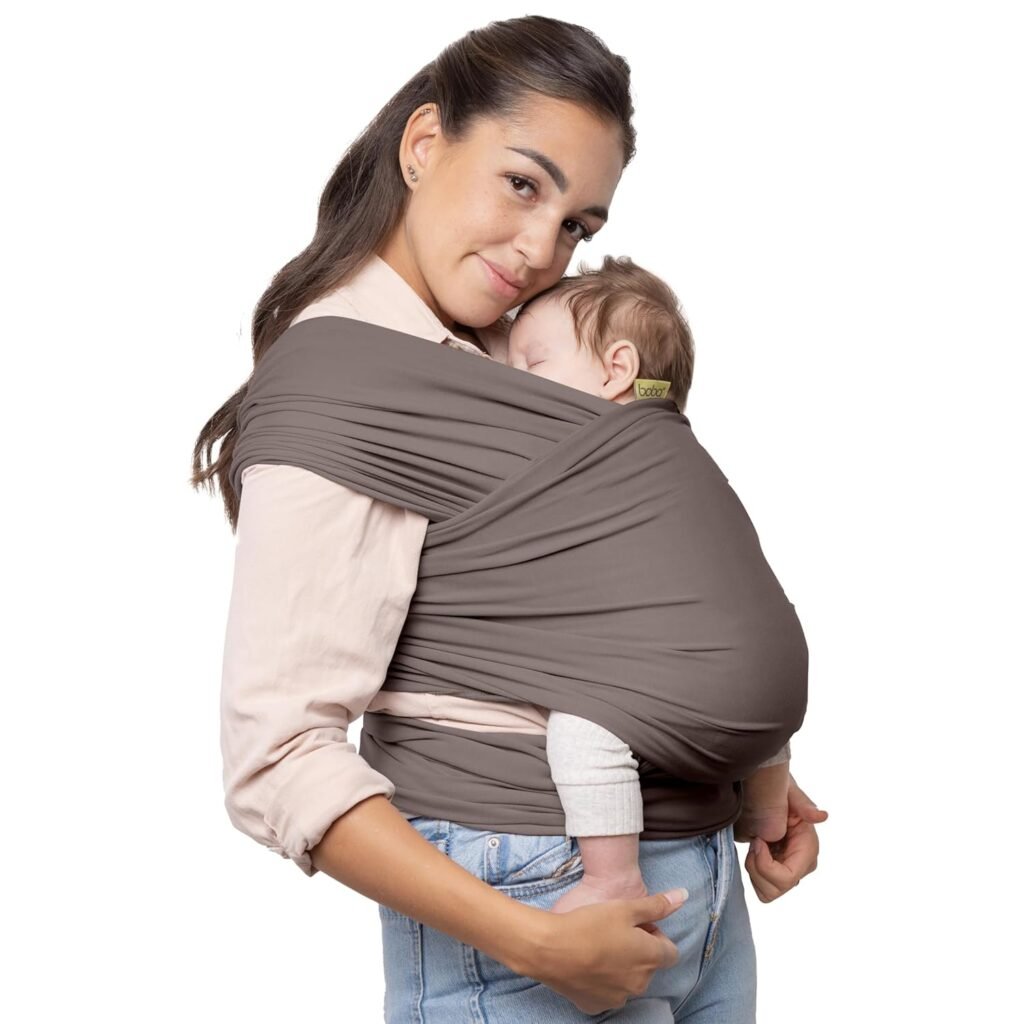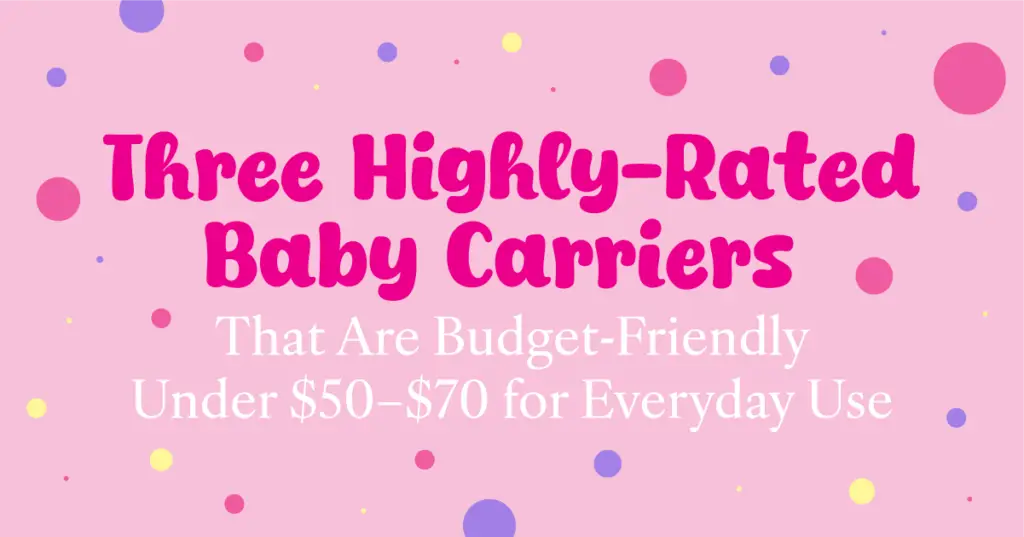Finding a quality baby carrier doesn’t have to mean spending a fortune. Many highly-rated options offer comfort, safety, and durability without breaking the bank.
Three budget-friendly baby carriers typically priced under $50–$70 provide reliable support and convenience for everyday use. These carriers often include adjustable features and breathable materials, making them practical choices for parents on a budget.
Parents can trust these affordable carriers to handle daily wear while keeping their baby secure. Exploring these options helps balance cost with essential functionality.
Top Three Budget-Friendly Baby Carriers
These baby carriers balance affordability with quality and comfort. Each offers unique features tailored to different needs, making them effective choices for budget-conscious parents.
Overview of Selection Criteria
Price was limited to under $70 to ensure affordability. Comfort features like padded straps, breathable fabric, and ergonomic design were prioritized.
Ease of use factors such as adjustable sizing, simple buckles or wraps, and machine-washable material were also considered. Durability was assessed by brand reputation and customer reviews.
Versatility in carrying positions and newborn support were important for longer-term usability. Safety certifications and user feedback on comfort rounds out the criteria.
Carrier 1: Ergobaby Embrace Mini

The Ergobaby Embrace Mini is designed for newborns up to 25 pounds. It uses soft, breathable cotton and foam padding for all-day comfort.
This carrier features adjustable straps to fit various body types and offers front-facing and inward-facing positions. The simple buckle system allows for quick wearing and removal.
It supports the baby’s hips in the ergonomic M-position to promote healthy development. The compact design is lightweight and easy to fold for travel or storage.
The Embrace Mini is machine washable, making maintenance straightforward, and it meets all relevant safety standards.
Carrier 2: Infantino Flip Advanced 4-in-1

Infantino Flip Advanced offers four carrying positions: front-inward, front-outward, hip, and back. This versatility suits babies from infancy up to around 32 pounds.
It includes padded shoulder straps and a supportive waistband for better weight distribution. The structured seat maintains ergonomic positioning for baby comfort.
The carrier has adjustable buckles and straps to accommodate a range of caregiver sizes. Made from durable polyester and mesh materials, it provides breathability.
It includes a removable head support pillow for newborns, simplifying transitions as babies grow.
Carrier 3: Boba Wrap Classic

The Boba Wrap Classic is a stretchy, soft fabric carrier designed for newborns and infants up to 35 pounds. Its wrap-around style evenly distributes the baby’s weight across the wearer’s back and shoulders.
Made from breathable cotton and spandex blend, it provides a snug, secure fit with considerable flexibility. It requires manual wrapping but offers customization for various body types.
This carrier fosters skin-to-skin contact and promotes bonding through close contact. It is machine washable and available in multiple colors.
The wrap design offers support and comfort but requires practice to use effectively.
Key Features To Compare
When choosing a budget-friendly baby carrier, several practical factors affect safety, comfort, and ease of use. Comparing these features helps narrow down the best option for everyday needs and longer wear.
Safety Standards and Certifications
Safety certifications are crucial when selecting a baby carrier. Look for compliance with ASTM International or CPSC standards to ensure the product meets basic safety requirements. Some carriers may also have JPMA certification, which confirms additional testing for infant carriers.
Check for secure buckles and sturdy stitching. These help prevent accidental openings or tears, which could pose risks during use. The carrier should support an ergonomic position for the baby’s hips to reduce strain and developmental issues.
Manufacturers often include weight limits on labels or packaging. These limits indicate safe usage ranges to avoid overloading. Buyers should verify that the carrier supports their child’s current size and projected growth.
Comfort and Adjustability
Comfort hinges on adequate padding and adjustable straps. Wide, padded shoulder straps reduce pressure on the wearer’s back and shoulders. Waist belts distribute weight evenly, which is important for extended wear.
Adjustability is key to fit different adult body types and baby sizes. Look for carriers with multiple strap settings, buckles, or Velcro to customize snugness. A carrier that adapts as the child grows adds value, especially for long-term use.
Material breathability also affects comfort. Lightweight, moisture-wicking fabrics prevent overheating in warm weather. Soft interiors protect the baby’s sensitive skin from irritation.
Ease of Use
Ease of use saves time and frustration for caregivers managing a baby. Simplicity in fastening mechanisms—such as quick-release buckles or easy Velcro adjustments—makes putting on and taking off the carrier faster.
Instructions should be clear and straightforward. Some models offer instructional videos or printed guides for proper wear and positioning, helping avoid misuse.
Also consider cleaning options. Many budget carriers allow machine washing or have removable fabric parts. Quick drying fabrics are an added convenience for busy parents.
Choosing the Right Baby Carrier for Your Needs
Selecting a baby carrier involves matching it to your child’s size and your comfort preferences. Factors like supported weight and fabric type impact usability, safety, and comfort during use.
Ages and Weight Ranges Supported
A baby carrier must fit the child’s size and growth stage. Many budget-friendly options accommodate infants from around 7 pounds up to 35 or 40 pounds.
Carriers designed for newborns often include adjustable inserts or special padding for smaller babies. This ensures proper head and neck support.
For toddlers or older babies, look for carriers with wider straps and reinforced stitching. This provides better weight distribution and durability.
Common ranges to note:
- Newborn to 3 months: requires extra support features
- 7–33 pounds: standard infant and toddler use
- 7–40+ pounds: extended use but may sacrifice fit for smaller babies
Checking manufacturer weight guidelines is essential to ensure safety and comfort.
Material and Breathability
The fabric affects comfort for both baby and wearer, especially in warm or active conditions. Lightweight cotton and mesh blends are common in budget carriers.
Cotton offers durability and softness but can be thicker and less breathable than mesh. It suits cooler climates or less active wearers.
Mesh fabric promotes airflow, helping to reduce sweating during long use or hot weather. However, it may be less cushioned or feel less sturdy.
Some carriers combine materials, such as a cotton base with mesh panels, balancing breathability and support.
When choosing, consider climate, typical use, and any baby skin sensitivities. Machine-washable materials also add convenience.

